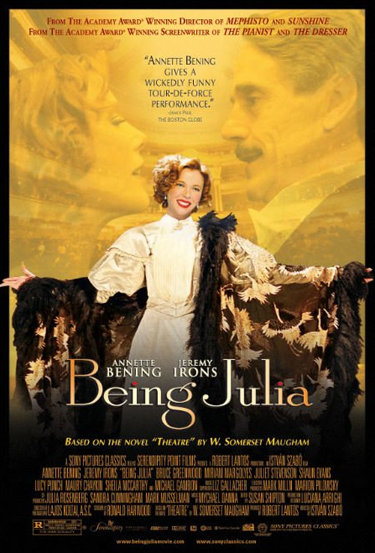
This past week I was called in to work with a client whose primary concern was how very, very nervous she was at the idea of appearing on television. Her question for me? “How do I make that go away?” My answer? “You don’t. Being nervous is a good thing.”
Because, as Annette Bening said (far more elegantly) in the movie Being Julia, “Nerves are the respect you pay your audience.”
What does this mean? It means that being nervous is a sign that you care—that you want to do well. (In fact, the clients who make me the most nervous are the ones who aren’t nervous.) And what is wrong with wanting to do well? Nothing.
The trick, then, is to begin to manage your nervousness. How can you do that? By thinking of being nervous simply as being alive.
Here’s an example of what I mean. When I quit my job in publishing to do freelance work, one of my psych authors took me out to lunch and gave me the best advice I’ve ever received about running your own shop. She said, “You’re always going to be anxious, because you’ll never have the ‘right’ amount of work. You’ll usually have way too much or way too little. The trick is not to label feeling anxious as “bad.” The trick is to say to yourself, ‘Oh, I’m anxious. I must be alive.’ Because the perception that anxiety is ‘bad’ is only going to make you more anxious.”
The same is true for nervousness. Once you’ve labeled it as bad, you naturally begin to want to rid yourself of it. This generally backfires in one of two ways: you either do such a good job that you come across to your audience as lifeless, or you are working so hard to manage your nervousness that you aren’t present for your speech and so, are unable to be your best self. Stuffing down nervousness is a lose-lose.
What can you do instead? I recommend you say to yourself, “Wow, I’m nervous. Excellent! That means I’m alive and have energy to spare. What should I do with this spare energy? Give it away—knock the socks off my audience.”
As you learn to do this—to welcome nervousness, breathe into it, and recycle it as additional commitment and animation—you may actually begin to look forward to it, to be nervous if you aren’t nervous. Which, of course, is good, because you’ve started the cycle once again.
Frances Cole Jones
